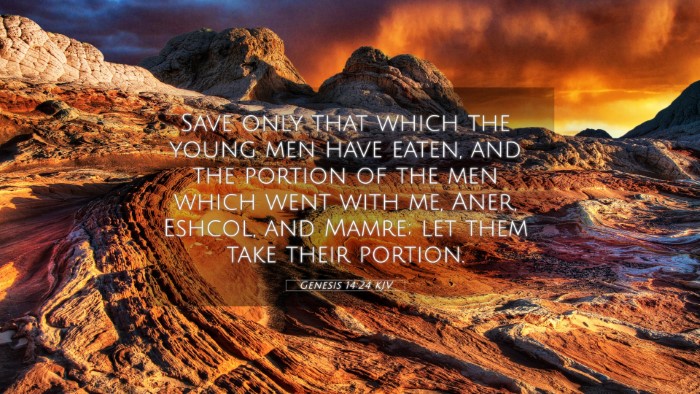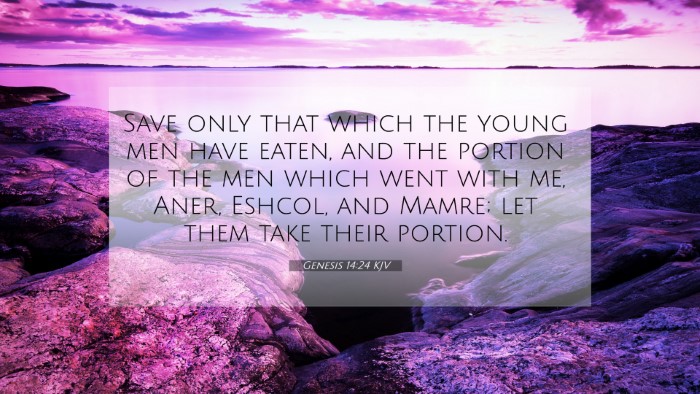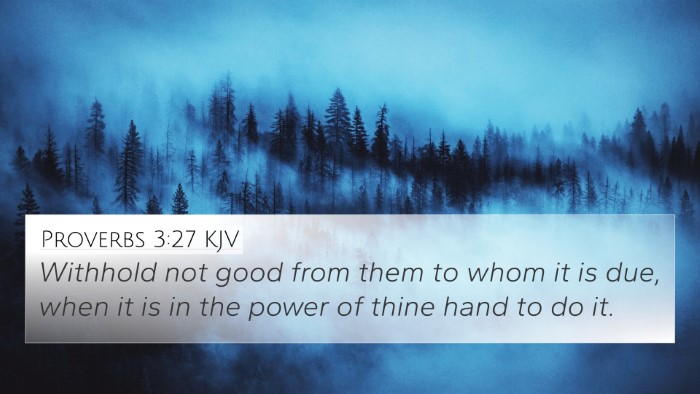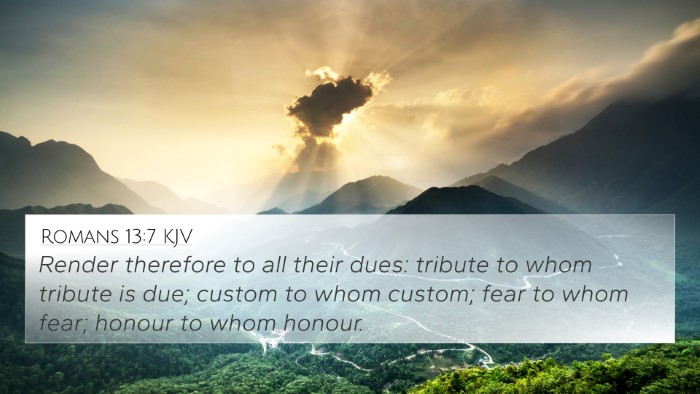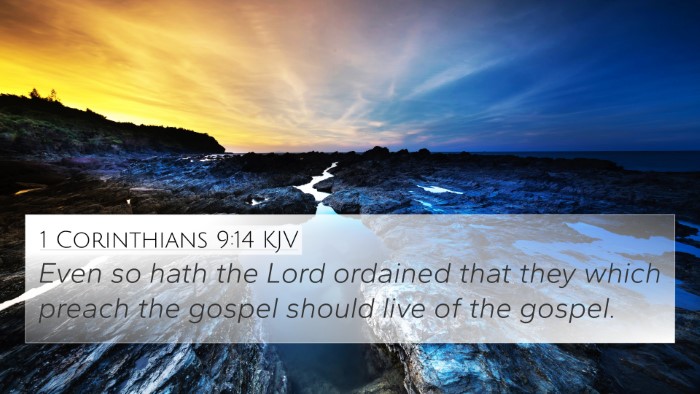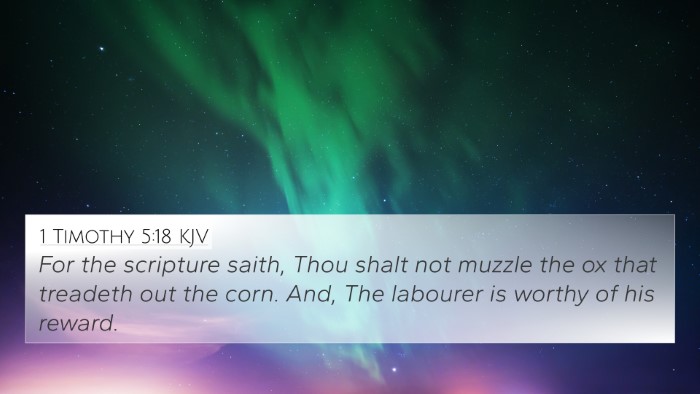Understanding Genesis 14:24
Verse: Genesis 14:24 - "Save only that which the young men have eaten, and the portion of the men which went with me, Aner, Eshcol, and Mamre; let them take their portion."
Verse Meaning
This verse occurs in the context of Abram's encounter with Melchizedek after the battle to rescue Lot. Abram refuses to take any spoils from the defeat of the kings to avoid making it appear that the king of Sodom had made him wealthy. Instead, he only allows the young men who accompanied him and his allies to take their share.
Insights from Commentaries
-
Matthew Henry:
Henry emphasizes Abram's humility and integrity. He highlights that Abram’s refusal to partake in the spoils reflects his dependence on God for provision rather than the riches of the world. Abram’s actions signify a commitment to righteousness and a desire to avoid any association with the wickedness of Sodom.
-
Albert Barnes:
Barnes discusses the significance of Abram’s choice. By not taking any spoils, Abram illustrates a principle of faith that trusts God for sustenance. He only allows the subordinate men to receive their just portion, reinforcing a sense of fairness and moral rectitude in his dealings.
-
Adam Clarke:
Clarke points out the practical implications of Abram’s decision. He notes that by giving the men their share while refusing to claim any for himself, Abram models a noble and selfless leadership style. This act serves as a lesson in self-denial and prioritizing spiritual riches over material wealth.
Bible Cross-References
Genesis 14:24 connects to several other verses that elaborate on its themes of righteousness, integrity, and faith. Here are some relevant cross-references:
- Genesis 13:2: "And Abram was very rich in cattle, in silver, and in gold." - This indicates Abram's previous wealth and reinforces his decision to remain humble.
- 1 Timothy 6:9-10: "But those who desire to be rich fall into temptation, into a snare..." - Highlights the dangers of greed and materialism.
- Hebrews 11:8-10: "By faith Abraham obeyed when he was called to go out to a place... for he was looking forward to the city that has foundations." - Focuses on Abram's faith and trust in God’s promises over earthly gains.
- Matthew 6:19-21: "Do not lay up for yourselves treasures on earth..." - This reinforces the teaching about the transient nature of earthly wealth.
- Psalm 37:16: "Better is the little that the righteous has than the abundance of many wicked." - Contrasts the value of righteousness against material possessions.
- Proverbs 28:20: "A faithful man will abound with blessings, but whoever hastens to be rich will not go unpunished." - This supports the theme of integrity over wealth.
- Job 31:24-25: "If I have made gold my trust or said to fine gold, ‘You are my confidence,’…” - Job expresses a similar rejection of wealth as a source of security.
- Luke 12:15: "Take care, and be on your guard against all covetousness..." - A cautionary approach to greed.
- Philippians 4:19: "And my God will supply every need of yours according to his riches in glory in Christ Jesus." - Reinforces the belief that God is the ultimate provider.
- Matthew 5:8: "Blessed are the pure in heart, for they shall see God." - Reflects the purity and integrity of Abram’s intentions.
Thematic Connections
The themes present in Genesis 14:24 resonate throughout the entire biblical narrative, offering a rich ground for comparative analysis:
- Faith Over Fortune: Across the Scriptures, the righteous often prioritize their faith in God over accumulating wealth.
- Integrity in Leadership: The model of leadership displayed by Abram remains relevant in discussions of ethical leadership.
- God as Provider: Numerous passages emphasize God’s role in providing for the needs of His people, reinforcing the message found in Genesis 14:24.
- The Rejection of Corruption: Characters throughout the Bible, like Joseph and Daniel, likewise resist corruptive influences from worldly wealth.
Conclusion
Genesis 14:24 serves as a profound reminder of the importance of integrity, faith, and personal morals in a world often driven by greed. By refusing to accept the spoils from Sodom, Abram’s actions illustrate a deeper trust in God’s provision and a commitment to righteousness that resonates through the ages.
Further Studies
For those interested in further exploration of cross-referencing Biblical texts, a comprehensive Bible concordance or Bible cross-reference guide can be invaluable tools. Understanding the connections between Bible verses enriches the study of scripture, aiding in sermon preparation and personal reflection.
For Study Methods
Methods of cross-referencing Bible study may involve thematic studies, examining the interconnectedness of Old and New Testament writings, or comparative studies of specific books, such as:
- Identifying connections between the Gospels
- Exploring cross-referenced themes in Proverbs and Pauline epistles
- Analyzing links between the writings of the Prophets and the Apostolic teachings

